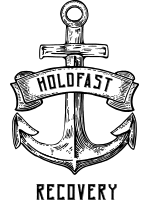
Prescott Cocaine Rehab
Cocaine Addiction Treatment in Arizona
Contact Us | Call Us | Admissions
Cocaine addiction is a complex disease that causes changes in brain chemistry and is often accompanied by a host of other social and environmental factors. As a result, those suffering from addiction often find it incredibly difficult to break the cycle on their own.
If you are ready to seek help, you don’t have to do it alone. At Holdfast Recovery, we offer professional, Christian-based drug addiction treatment for those dealing with all types of drug use disorders. Our team of compassionate, experienced caregivers and clinicians are dedicated to providing you with the ongoing care and support you need.
Get help for cocaine addiction by contacting our Prescott cocaine rehab at (800) 680-7738 today.
What Is Cocaine Addiction?
Cocaine addiction is a medical condition in which an individual experiences a compulsive desire to misuse cocaine, despite the persistence of negative effects on the person’s life. Currently, cocaine is classified as a Schedule II substance in the United States, meaning it can be administered by a healthcare professional for legitimate reasons, but it has a very high potential for misuse.
Cocaine is a powerful stimulant. Its source, the coca leaf, has been ingested by indigenous people for thousands of years; purified cocaine has been used for well over 100 years in the United States. Today, it is abused in two forms: as hydrochloride salt (powder) and in its base form (freebase). Most people who seek treatment for cocaine addiction have a history of misusing freebase cocaine, commonly known as crack cocaine or simply “crack.” However, powder cocaine is just as addictive and can lead to increased tolerance, dependence, and addiction.
Facts & Statistics About Cocaine Use
- According to the National Institute on Drug Abuse, cocaine-related overdose deaths are rising in the United States, with more than 16,000 people dying in 2019 alone.
- A 2020 national survey by the National Institutes of Health revealed that 4.1% of 12th graders reported having used cocaine at least once in their lifetime (up from 3.8% in 2019), with 2.9% reporting having used cocaine at least once within the past year (up from 2.2% in 2019). This same study revealed 16.8% of adults age 26 or older reported having used cocaine at least once in their lifetime.
- Americans between the ages of 18 to 25 use cocaine more than any other age group.
Signs of Cocaine Abuse & Addiction
It can be incredibly difficult to recognize the signs of cocaine abuse or addiction, as many users hide or lie about the true extent of their drug use—even to themselves. And because cocaine is a relatively popular social drug, it can be difficult for friends and family members to determine when experimentation has gotten out of hand.
Some signs of cocaine abuse and addiction include:
- Noticeable changes in a person’s self-confidence or self-esteem
- Loss of enjoyment/interest in various activities
- Increased excitability and talkativeness
- Dilated pupils
- Runny nose and nosebleeds
- Sudden weight loss/changes in appetite
- Mood swings
- Insomnia/extended periods of wakefulness
- Paranoia
- Engaging in risky behaviors
- Changes in eating or sleeping patterns
- Financial or legal problems
- Irritability and agitation
- Depression
- Being late or missing work
- Loss of employment
- Social isolation
- Poor hygiene
- Increased secretiveness
- Burns on the lips and/or fingers
- Drug paraphernalia (razor blades, spoons, baggies, etc.)
- White powder near the nose/mouth
Long-term cocaine abuse can lead to elevated heart rate and blood pressure, as well as overdose and death as users develop higher tolerance for the drug. Additionally, street cocaine is often “cut” with other substances, including other drugs, which can have severe consequences for the user. And when cocaine is abused alongside other substances, such as alcohol, its physical and psychological effects can become noticeably more pronounced.
Unfortunately, because it changes the chemical makeup of the user’s brain, cocaine is incredibly addicting, and it can be very challenging for a person to quit without professional help and treatment.
How Is Cocaine Addiction Treated?
Cocaine abuse and addiction often goes hand-in-hand with the misuse of other types of substances, as well as certain mental and emotional conditions, familial relationship issues, and other environmental factors. As such, treating cocaine abuse and addiction may require dual diagnosis treatment.
Behavioral therapies have been proven to be an effective method of treating cocaine abuse and addiction, both in inpatient and outpatient settings. Cognitive behavioral therapy (CBT), in particular, has been shown to be an effective method of preventing cocaine abuse relapse, especially when it is used as an element of whole-person drug addiction treatment.
Our Cocaine Treatment Programs
At our cocaine rehab center in Prescott, we offer a number of personalized treatment programs for those struggling with cocaine abuse and addiction. We utilize a comprehensive approach to recovery that focuses not only on treatment and physical wellness but also on healing the underlying trauma and stressors often associated with cocaine misuse.
Our programs combine a variety of treatments, including:
- Group therapy
- Individual therapy
- Physical fitness
- Weekly and bi-weekly meetings
- 12-step programs
- Bible studies and men’s groups
- Church
We also offer comprehensive aftercare treatment, including sober living, so you can continue receiving the tools you need for long-term sobriety. Throughout the process, you will receive caring, personalized support from our professional, understanding team. This support goes beyond what you need to break the cycle and extends into your ordinary, post-rehab life.
Our team will help you develop strategies for avoiding triggers, managing cravings, and focusing on your educational, career, and relationship goals so you can focus on your future. Most of our clients who ultimately succeed in achieving long-term sobriety participate in about two years of aftercare.
Overcoming Cocaine Addiction
The first step is acknowledging that you have a problem. The second step is working your program in the long term. Overcoming addiction is challenging for the addicted person as well as loved ones. Our Prescott cocaine addiction rehab can help you in the long-term.
There are several negative side effects associated with cocaine usage, so the sooner you get involved in a rehab program, sooner you can achieve long-term sobriety. Along with that sobriety, you can expect a more fulfilling, healthy life.
Call Today to Learn More About Our Cocaine Rehab Approach
At Holdfast Recovery, we understand that taking that first step is challenging. We know what you are going through because we’ve been there before. Our team is ready to help you navigate the process of recovery; we can handle all of the details while you simply focus on the help you need.
We accept most major insurance providers. Please contact us online or by phone at (800) 680-7738 to learn more.

HEAR FROM PAST CLIENTS
Frequently Asked Questions
-
 Do You Treat My Addiction?At Holdfast Recovery, we treat both alcohol addiction and all forms of drug addiction (including co-occurring mental health disorders). We offer an array of programs to target your unique needs.
Do You Treat My Addiction?At Holdfast Recovery, we treat both alcohol addiction and all forms of drug addiction (including co-occurring mental health disorders). We offer an array of programs to target your unique needs. -
 Where Do I Live While In Treatment?While at Holdfast Recovery, you can live under our care at our own housing program or if preferred, you can stay with a family member. We have 24/7 staff that are always here for you.
Where Do I Live While In Treatment?While at Holdfast Recovery, you can live under our care at our own housing program or if preferred, you can stay with a family member. We have 24/7 staff that are always here for you. -
 Will My Insurance Cover This?At Holdfast Recovery, we accept most major insurances and understand how hard the process can be. Fill out our insurance form or give us a call and we will help you along the way.
Will My Insurance Cover This?At Holdfast Recovery, we accept most major insurances and understand how hard the process can be. Fill out our insurance form or give us a call and we will help you along the way. -
 How is Your Program Different?Our program is different in many ways, one of them being our 3-phase approach and how we address addiction and the trauma that lies underneath!
How is Your Program Different?Our program is different in many ways, one of them being our 3-phase approach and how we address addiction and the trauma that lies underneath!






